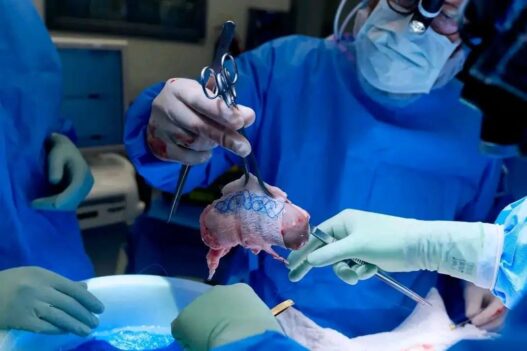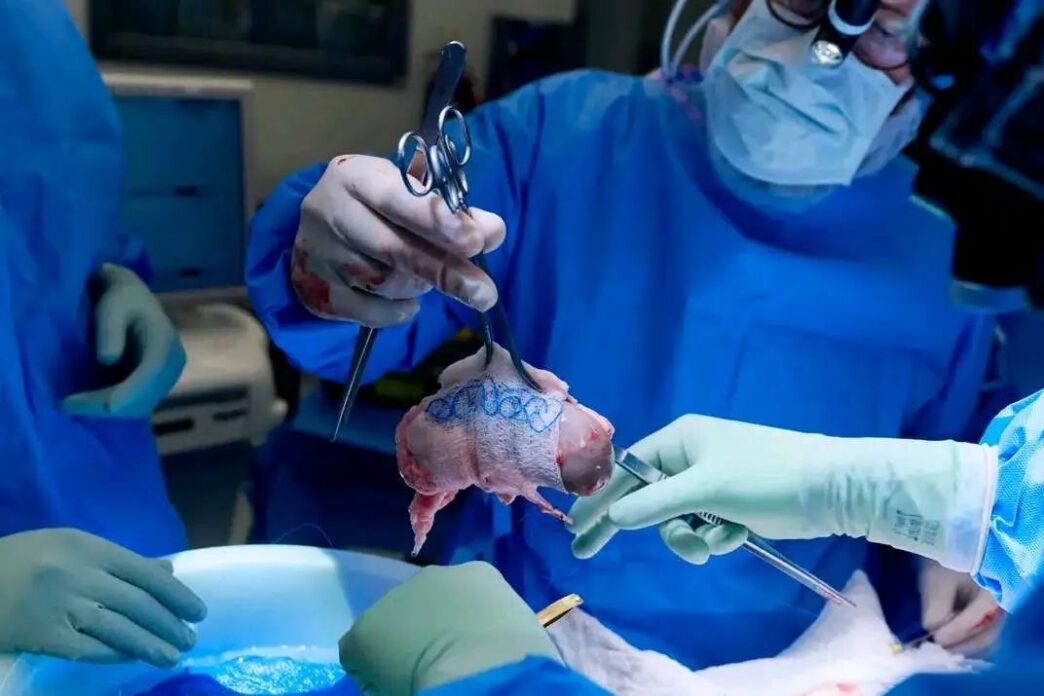A woman from Alabama received a genetically modified pig kidney transplant, and just three weeks later, she felt “better than ever,” according to a report by The New York Times‘s Ronnie Carlin Rabin. On November 25, 53-year-old Towana Looney became the third person in the United States to undergo a pig kidney transplant as part of an experimental procedure.
1. The Surgery and Recovery
As reported by The New York Times, a woman from Alabama who received a genetically modified pig kidney transplant now feels “better than ever.” Last month, Towana Looney, 53, became the third living person in the U.S. to receive a pig kidney transplant.
So far, Looney’s recovery has been remarkable, but doctors at the NYU Langone Health Center are closely monitoring her progress. They aim to ensure her continued well-being and study the outcomes of this groundbreaking procedure.
In 1999, Looney donated one of her kidneys to her mother. However, in 2002, while pregnant with her second child, she developed preeclampsia, a condition that causes uncontrollable high blood pressure. This condition led to kidney damage and ultimately chronic kidney disease.

By the end of 2016, Looney began dialysis treatment, a process to remove excess fluids and waste from the blood when the kidneys no longer function properly. Early the following year, she was added to the transplant list for a human kidney. As a living donor with good health, Looney was high on the list.
However, an official statement from NYU Langone Health Center noted that finding a compatible human kidney for Looney was “almost impossible.” Her blood had a high level of antibodies, which likely caused her body to reject most transplanted kidneys.
Looney had been on the waiting list for nearly eight years.
2. The Opportunity for a Pig Kidney Transplant
Looney remembers watching a TV report about researchers studying the potential of pig organs for human use. Intrigued, Looney had her dialysis social worker inquire about the possibility of receiving a pig kidney transplant.
She got in touch with Jayme Locke, a transplant surgeon and the director of the incompatible kidney transplant program at the University of Alabama at Birmingham. Locke later became the director of the Transplantation Division at the U.S. Department of Health and Human Services.
Locke applied to the U.S. Food and Drug Administration (FDA) for permission to perform a xenotransplantation—the transplantation of non-human tissues into humans. The FDA ultimately approved the procedure under a project that allows doctors to conduct experimental surgeries on patients with no other options.
Xenotransplantation is undoubtedly risky, but Looney was willing to take the chance. Two previous patients who received genetically edited pig kidney transplants had both passed away. The first died of a cardiac arrest, which doctors said was unrelated to the transplant. The second had to have the pig kidney removed after it was damaged by heart medication. These patients were in much worse condition than Looney, suffering from severe heart disease, which Looney did not have.
3. Details of the Surgery and Kidney Sourcing
Looney’s surgery was scheduled for November 25. The procedure was conducted by Locke, along with her mentor, Dr. Robert Montgomery, the Director of the Transplant Institute at NYU Langone Health.
The pig kidney came from a company called Revivicor, a subsidiary of United Therapeutics. Scientists at Revivicor performed ten genetic edits on the pigs to increase the likelihood that Looney’s body would accept the foreign tissue. They added six human genes and removed one gene responsible for growth hormone in pigs. Additionally, they removed three genes that could trigger an immune response in Looney’s body.
As reported by Nicolleta Lannes of Life Sciences, researchers had previously tested the ten-edited pig kidneys on brain-dead human patients, so they had some idea of how Looney’s body might react. In contrast, the two previous patients received pig kidneys that had only undergone one genetic edit.
The surgery lasted seven hours. Once the pig kidney was sutured into place, it immediately turned pink and began producing urine—both good signs of successful transplant.
By December 6, just 11 days after the surgery, Looney was discharged. Tests showed that her new kidney was clearing waste products such as creatinine from her blood. She stopped dialysis, and her blood pressure was under control.
For the next three months, Looney will remain near the hospital so that doctors can perform daily check-ups. She will also wear devices that monitor her blood pressure, heart rate, and other vital functions.
Doctors are keeping a close eye on her for early signs of organ rejection. Pig kidney transplants tend to have a higher risk of rejection than human kidney transplants. If rejection is detected, doctors may administer immunosuppressive drugs to manage the response.

4. Future Outlook and Encouraging Other Patients
In 1999, Towana Looney donated one of her kidneys to her mother.
Looking ahead, doctors at NYU Langone Health Center hope to start formal clinical trials next year using the ten-edited pig kidneys. They also aim to compare the performance of the ten-edited pig kidneys with kidneys that have been genetically edited only once.
“Transplantation is one of the few therapies capable of curing complex diseases overnight, but there are not enough organs to provide that cure for everyone in need,” Locke stated. “Thinking about how we might now solve the organ shortage crisis for those languishing on waiting lists gives me pure joy.”
Meanwhile, Looney is enjoying life with fully functioning kidneys. Her appetite has returned, she can easily do household chores, and she has dreams for the future—like visiting Disneyland.
“It feels like a new beginning,” Looney told AP‘s Lauren Neillgard.
She encourages other dialysis patients to consider whether a pig kidney transplant might be right for them. It’s estimated that 35.5 million American adults have chronic kidney disease, and over 90,000 patients are on the kidney transplant waiting list. According to the National Kidney Foundation, approximately 27,000 patients received human kidney transplants in 2023.
“I want to give courage to those on dialysis—I know it’s not easy,” Looney said during a news conference on Tuesday, as reported by Life Sciences. “And this isn’t the only option. There is hope.”



















